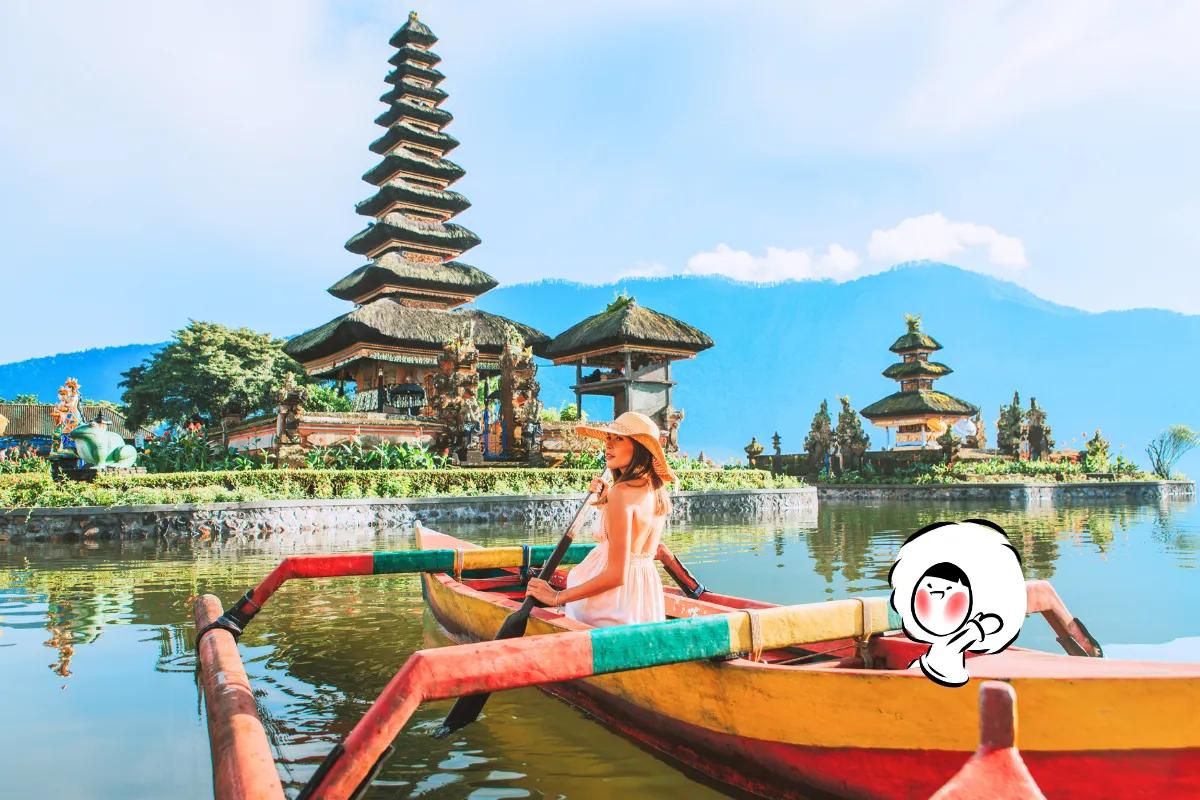
Best Time to Visit Bali in a Year
Best Time of the Year to Visit Bali
Bali's tropical climate offers a unique experience throughout the year, but local residents often highlight June and September as the prime months to visit. These months mark the transition periods in Bali's weather cycle, offering a blend of favorable conditions and fewer tourists.
June: The Onset of the Dry Season
June signifies the beginning of Bali's dry season. The heavy rains from the earlier months have subsided, leaving behind lush landscapes and clear skies. Temperatures are warm, averaging around 30°C (86°F), and humidity levels are relatively low, making it comfortable for outdoor activities. Additionally, since it's just before the peak tourist season, popular attractions are less crowded, allowing for a more relaxed experience.
September: The Tail End of the Dry Season
September continues the dry season's favorable weather, with minimal rainfall and pleasant temperatures. The bustling crowds of July and August have diminished, providing a more tranquil atmosphere. This month is ideal for travelers seeking both good weather and a peaceful environment.
Activities to Enjoy in Bali
Bali offers a diverse range of activities that cater to various interests, from beach enthusiasts to culture seekers. Here's a guide to some of the top experiences you can enjoy on the island:
Explore Bali's Beaches
- White Sand Beaches in Uluwatu: Located on the southern tip of Bali, Uluwatu boasts stunning white sand beaches like Padang Padang and Nyang Nyang. These beaches are perfect for sunbathing, swimming, and enjoying the scenic cliffs.
- Black Sand Beaches in Canggu and Pererenan: The volcanic activity in Bali has given rise to unique black sand beaches. Echo Beach and Pererenan Beach in Canggu are popular spots, offering a distinctive coastal experience.
- Surfing at Kuta Beach: Kuta Beach is renowned for its consistent waves, making it an ideal spot for beginners to learn surfing. Numerous surf schools along the beach offer lessons and board rentals.
Café Hopping in Seminyak and Canggu
Bali's café culture is vibrant, especially in areas like Seminyak and Canggu. These neighborhoods are home to a plethora of unique cafés offering everything from specialty coffees to plant-based dishes. Notable spots include Revolver Espresso in Seminyak and The Avocado Factory in Canggu.
Wellness Activities: Yoga and Pilates
For those seeking relaxation and rejuvenation, Bali offers numerous wellness studios:
- Sanur: Studios like Power of Now Oasis provide a serene environment for yoga enthusiasts.
- Canggu: Maja Studio offers a range of classes, including yoga, pilates, and barre, catering to various fitness levels.
Water Sports in Tanjung Benoa
Tanjung Benoa is the hub for water sports in Bali. Activities available include:
- Jet Skiing and Parasailing: Experience the thrill of speeding across the water or soaring above the coastline.
- Snorkeling and Scuba Diving: Explore the vibrant marine life and coral reefs.
- Sea Walker and Flyboarding: Unique experiences that allow you to walk on the seabed or hover above the water.
Discover Waterfalls in North Bali
North Bali is renowned for its lush landscapes and an abundance of waterfalls, each offering unique experiences. Here are ten must-visit waterfalls in the region:
- Sekumpul Waterfall: Often considered Bali's most beautiful waterfall, Sekumpul features seven cascades surrounded by lush jungle. Reaching it involves a trek through rice terraces and a river crossing, but the view is well worth the effort.
- Gitgit Waterfall: Located near Singaraja, Gitgit is one of the most accessible waterfalls in North Bali. Its 35-meter drop is surrounded by tropical foliage, making it a popular spot for visitors.
- Aling-Aling Waterfall: This 35-meter waterfall is unique due to its split stream. Nearby, you can find natural water slides and spots for cliff jumping, but a guide is required for these activities.
- Banyumala Twin Waterfall: Hidden in the Wanagiri area, this waterfall features two parallel falls cascading into a clear pool, perfect for swimming. The trek to reach it is moderately challenging but rewarding.
- Munduk Waterfall: Situated in the highlands, Munduk offers a serene environment with a 15-meter drop surrounded by coffee plantations and clove trees. It's an ideal spot for nature lovers.
- Melanting Waterfall: Close to Munduk, Melanting is a taller and more secluded waterfall, requiring a bit more effort to reach, but offering a tranquil setting away from crowds.
- Banyu Wana Amertha Waterfall: This area boasts multiple waterfalls, each with its own charm. The paths are well-maintained, making it suitable for families and casual hikers.
- Jembong Waterfall: Known for its gentle flow and serene surroundings, Jembong is less crowded, making it perfect for relaxation and meditation.
- Fiji Waterfall: Located near Sekumpul, Fiji Waterfall features three side-by-side cascades. The area is less frequented, offering a peaceful experience.
- Singsing Waterfall: Situated near Lovina, Singsing is easily accessible and ideal for a quick visit. The waterfall is especially beautiful during the rainy season when the water flow is stronger.
Immerse in Culture in Ubud
Ubud is the cultural heart of Bali, offering a rich tapestry of art and tradition:
- Traditional Dance Performances: Venues like Ubud Palace host regular performances showcasing Balinese dance forms.
- Art and Craft Villages: Explore villages like Mas and Celuk, known for woodcarving and silverwork, respectively.
- Unique Cafés: Ubud's café culture blends traditional Balinese aesthetics with contemporary culinary trends, offering a variety of unique dining experiences.
- Yoga and Wellness Activities: The town is renowned for its numerous yoga studios and wellness centers, providing a range of classes and holistic treatments.
Best Places to Stay in Bali
Seminyak
- Ambience: Trendy and upscale, Seminyak is known for its stylish boutiques, high-end restaurants, and vibrant nightlife.
- Environment: Located on Bali's southwest coast, it boasts beautiful beaches and a lively atmosphere.
Ubud
- Ambience: Cultural and spiritual, Ubud is the heart of Bali's arts scene, offering a tranquil setting amidst rice terraces and temples.
- Environment: Situated inland, it's surrounded by lush greenery and traditional villages.
Canggu
- Ambience: Laid-back and hip, Canggu is popular among surfers and digital nomads, featuring trendy cafes and a relaxed vibe.
- Environment: This coastal village offers black sand beaches and scenic rice fields.
Uluwatu
- Ambience: Peaceful and scenic, Uluwatu is renowned for its cliffside views and world-class surfing spots.
- Environment: Located on the Bukit Peninsula, it offers dramatic coastlines and serene beaches.
Nusa Dua
- Ambience: Family-friendly and luxurious, Nusa Dua is known for its well-maintained resorts and calm beaches.
- Environment: Situated on Bali's southern coast, it offers a more secluded and secure setting.
Sanur
- Ambience: Relaxed and traditional, Sanur provides a quieter alternative to the busier beach towns.
- Environment: Located on the southeast coast, it features a long stretch of beach and a laid-back atmosphere.
Jimbaran
- Ambience: Romantic and serene, Jimbaran is famous for its seafood restaurants and sunset views.
- Environment: Nestled along the southwest coast, it offers a peaceful beach setting.
Should You Rent a Motorbike or Hire a Private Driver in Bali?
Exploring Bali offers various transportation options, each catering to different travel styles and preferences. Here's a breakdown to help you decide between renting a motorbike or hiring a private car with a driver:
Renting a Motorbike: Ideal for Adventurous Explorers
For those eager to delve deep into Bali's hidden gems and rural landscapes, renting a motorbike provides unparalleled freedom.
- Flexibility: Navigate through traffic with ease and access remote areas not serviced by public transport.
- Cost-Effective: Daily rentals typically range from IDR 60,000 to 100,000 (~USD $4–$7), making it a budget-friendly option.
- Requirements: An International Driving Permit (IDP) with a motorcycle endorsement is legally required.
- Safety Considerations: Always wear a helmet, adhere to traffic rules, and be cautious of road conditions, especially during the rainy season.
Renting a Motorbike in Bali
- Pros: Offers flexibility and access to remote areas.
- Cons: Traffic can be chaotic, and road conditions vary.
Tips:
- License: An International Driving Permit is required.
- Safety Gear: Always wear a helmet and appropriate clothing.
- Insurance: Ensure you have adequate coverage in case of accidents.
Hiring a Private Car with Driver: Comfort and Convenience
If you prefer a more relaxed experience without the stress of navigating unfamiliar roads, hiring a private car with a driver is advisable.
- Comfort: Travel in air-conditioned vehicles, ideal for families or groups.
- Local Insight: Drivers often serve as informal guides, sharing knowledge about local attractions and culture.
- Cost: Rates vary based on duration and distance, with options available for half-day or full-day hires.
- Flexibility: Customize your itinerary and enjoy the convenience of door-to-door service.
Making the Choice
- Opt for a Motorbike if you're an experienced rider seeking adventure and autonomy.
- Choose a Private Driver if you value comfort, safety, and local insights, especially when traveling with companions or carrying luggage.
Daily Expenses in Bali
- Budget Travelers: Approximately $30–$50 per day, covering basic accommodations, local meals, and transportation.
- Mid-Range Travelers: Around $60–$100 per day, including comfortable lodging, diverse dining options, and activities.
- Luxury Travelers: $150 and above per day for premium accommodations, fine dining, and exclusive experiences.
Things to Avoid in Bali
- Disrespecting Local Customs: Always dress modestly when visiting temples and participate respectfully in local ceremonies.
- Littering: Help preserve Bali's natural beauty by disposing of waste properly.
- Overindulgence: While nightlife is vibrant, excessive behavior can be frowned upon and may lead to legal issues.
Preparing for Your Bali Trip
- Travel Documents: Ensure your passport is valid for at least six months and check visa requirements from your country.
- Health Precautions: Consult with a healthcare provider about necessary vaccinations and carry a basic first-aid kit.
- Currency: The local currency in Bali is the Indonesian Rupiah (IDR). While currency exchange services are available the airport, they often offer less favorable rates compared to those found in town. It's advisable to exchange only a small amount at the airport to cover immediate expenses, such as transportation to your accommodation.
For better exchange rates, consider using ATMs affiliated with reputable local banks like BCA, BNI, or Mandiri. These banks typically offer more competitive rates and are widely available throughout Bali. Be mindful of potential withdrawal fees imposed by your home bank and the ATM operator. To minimize these fees, it's recommended to withdraw larger amounts less frequently. - Connectivity: If you're planning a trip to Indonesia, it's advisable to use an eSIM for internet access. While tourist SIM cards are available and can be used without registering your phone's IMEI for stays under 90 days , some travelers have reported issues with certain phone models not being compatible or facing difficulties with the registration process. To avoid potential hassles and ensure seamless connectivity, opting for an eSIM is a convenient alternative.
Eskimo eSIM offers reliable internet access in over 80 countries, including Indonesia. With Eskimo, you can stay connected without worrying about SIM card compatibility or registration issues. As a bonus, Eskimo provides 500MB of global data for free to new users. You can claim this offer here.
FAQs
How long is the best time to spend in Bali?
10–14 days: Allows for a more immersive experience, including visits to multiple regions like Ubud, Canggu, and Uluwatu, as well as nearby islands like Nusa Penida or the Gili Islands.
Is it safe to drink tap water in Bali?
No. It's advisable to drink bottled or filtered water to avoid health issues.
Do I need vaccinations before traveling to Bali?
Consult with a healthcare provider for recommended vaccinations based on your health and travel plans.
What should I pack for Bali?
Lightweight clothing, sunscreen, insect repellent, and a reusable water bottle are essentials.
